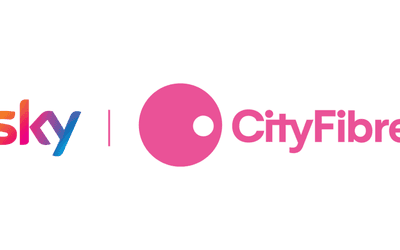Don’t be afraid to simply ask to pay less. It is actually a conversation that providers expect and are prepared to have. And with the sudden rise of new alternative networks, there is so much competition that the ball is certainly in your court. Here are our tips on how to negotiate a better broadband deal this year.
Get your timing right
Timing is everything when it comes to getting the best broadband deal.
The ideal moment to start negotiating is within the final 30 days of your contract – when you're free to switch without exit fees but still have leverage as an existing customer. This is when providers are most willing to offer discounts to keep you.
If you're already out of contract, you're probably paying more than you need to. You have the freedom to leave or renegotiate. If you're still mid-contract, check how long you’ve got left – some providers allow you to upgrade or re-contract early without penalty, especially if you’re moving to a pricier or longer-term plan.
Keep an eye on industry-wide price hikes (often announced in early spring). Negotiating just before or after a rise can give you an extra edge, especially if you weren’t warned or the increase is significant.
Build your case
Before you start negotiating, arm yourself with all the important details:
- Your current monthly price
- Your contract end date
- Note how many years you have been a loyal customer for
- Your average download/upload speeds
- Any additional perks (e.g. free calls, TV packages) that make you a high-value customer
- Any issues you’ve had with your service. These could range from slow speeds, bad customer service, to unreliable connection. This might come in useful as an effective bargaining tool.
You’ll find the above – apart from the issues – on your bill or your online account. Knowing what you’re paying and what you’re getting will make it easier to compare other deals and puts you in a stronger position.
Research what speed you actually need too. That can help you avoid being upsold products you do not need. For example, a provider might try and push back on money off by offering you a faster broadband package instead. But, if you don’t need the extra speed, that’s a waste of money.
Find out what broadband speed you need in our helpful feature.
Check out the competition
As part of your pre-haggling preparation, you should also use our broadband comparison postcode tool to see what other providers are offering in your area. Look for:
- Faster speeds for the same (or lower) price
- Incentives like bill credit, gift cards
- Deals for existing mobile customers (e.g. Vodafone, EE, O2)
Take note of the best offers – these will be your bargaining chips.
Speak to the right people
The standard customer service number won’t be the best team to speak to. Ring them as a start and say you are thinking of quitting your contract or switching to another provider. This will lead to you being transferred to a customer retention or loyalty team that typically has the power to offer the best deals to keep you from leaving.
Start with something like:
“I’ve seen better deals elsewhere and I’m thinking of switching. Can you match or beat these offers?”
Don’t be afraid to haggle
Say you are looking for better value on your current service. Explain that the price it is asking is simply too much and ask what is the best deal it can offer.
You've done your research and you know what other offers are out there. Try pointing out a specific deal you have seen advertised elsewhere. Or a special offer for new customers as a comparison to what you are being offered.
Don’t be shy about dropping the names of rival providers and their offers. For example:
“Sky is offering 150Mb for £25 with no setup fee – can you do anything similar?”
Most providers won’t want to lose you and will often come back with a counter-offer, especially if you're a long-time customer
Negotiation works. Some common sweeteners you might be offered:
- A discount for 12 or 18 months
- A free speed upgrade (remember, work out whether you really need this)
- Free or reduced setup costs
- Extra data or mobile bundle perks (especially with BT, EE, Sky, or Virgin Media)
Be polite and patient, but firm
Be polite at all times, but don’t take the first offer at face value. Silence is your friend. Don’t be the one to fill any silent gaps, let them do the talking so you can mull over what they are offering.
Try speaking to someone else
If you’re getting nowhere, give up and call back later. Sometimes speaking to a different person who is more senior, or trying again in a couple of days when new deals might have become available, can get you a better result.
Don’t reveal your budget
Try not revealing your budget when haggling for a deal. Revealing your budget can limit the provider’s willingness to negotiate further, as they may feel they’ve already reached your price point. You need to have a budget in mind, but don’t tell them this straight away. It’s fine to say if you think a package is too expensive though. Instead ask how low they can go and then make your own offer as a starting point.
Be prepared to leave – if you have to
If your provider simply won’t budge, and you’ve found a better deal, be ready to follow through. In many cases, initiating the cancellation process will trigger even better “last ditch” offers from the provider.
Don’t just accept a package if you’re not happy. Switching and starting as a new customer with a different provider will often get you the best deal possible.
Watch out for hidden costs
If what they are offering sounds tempting, don’t forget to always check:
- Whether prices will increase mid-contract
- If there's an activation or delivery fee
- What the exit fees are if you decide to cancel later
- How long your contract will be
You can ask for everything to be confirmed in writing or via email.
Set a reminder for next time
Many providers hike prices once your minimum term ends. Set a calendar reminder a month before your deal expires, so you can go through the process again. It’s easier the second time – and the savings add up fast.
Ready to see what you could save?
Use our broadband comparison tool to check the best deals in your area – and start negotiating like a pro.



